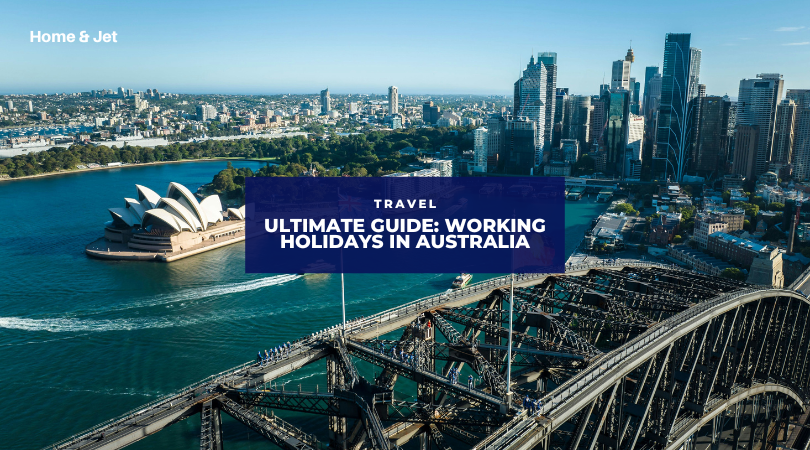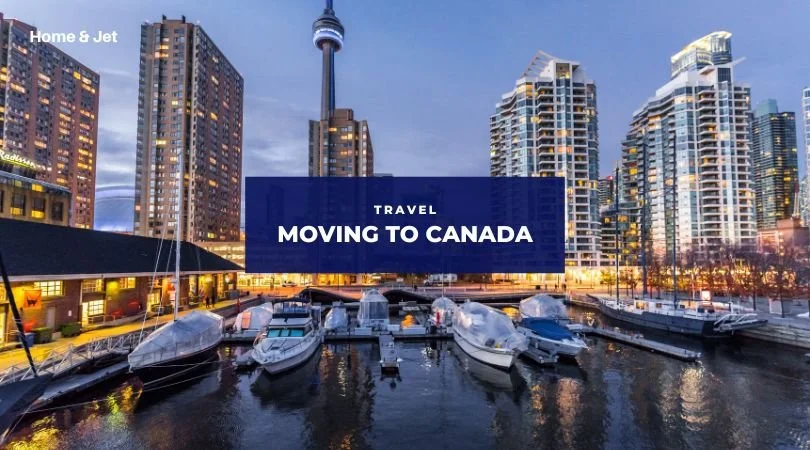8 Things to Consider When Moving to Canada
Are you considering moving to Canada?
The Great White North is renowned for many things, including its icy winters, beautiful national parks, and, of course, local delicacies like maple syrup. Canada also has a high GDP, plenty of job opportunities for skilled immigrants, and numerous cultural and sightseeing opportunities, including museums, art galleries, historical sites, and more.
But if you're planning your move to Canada, you should consider a few things before you book your plane ticket and embark on your new journey.
Considering the right factors will ensure that you enjoy an easy transition, find a suitable home and a stable source of income, and can settle successfully in Canada over time. Here is what you need to consider before moving to Canada.
1. Canadian Weather Varies Widely
The seasons in Canada may differ vastly from what you're used to, depending on where you're moving from. Most regions in Canada have four distinct seasons. During the year, temperatures vary widely and can plummet to -40 degrees Celsius in the winter and 40 degrees Celsius in the summer.
This wide range of temperatures means that it's crucial to ensure that you have the correct clothing and gear to keep you warm or cool all year round. Remember that you may need to invest in additional outerwear and thermal undergarments when you arrive. It's important to budget for this accordingly, as it can be a costly endeavor.
2. Canadians Expect Politeness
Everyone has heard the stereotype about Canadians being exceptionally polite. This stereotype is rooted in fact; most local people will expect the same level of politeness and courtesy from you.
Say thank you, please, sorry, and excuse me whenever it's appropriate. By doing so, you may find it easier to befriend the locals and become a respected member of your new community.
3. Canada is Culturally Diverse
Respect for all cultures is a social expectation, no matter where you travel in Canada. Canada prides itself on being culturally diverse and inclusive, and you'll find people of different cultures and ethnicities in every province and district. Canada's municipal and provincial governments go to great lengths to pay homage to the culturally diverse heritages of their people.
When you move over, expect to hear various languages and encounter different cultural traditions. Always remember to be respectful and tolerant of these cultures. After all, this diversity is why Canada is consistently ranked as one of the best countries in the world to live in.
4. Tipping is Expected
Whether you're catching a taxi, ordering poutine at a popular Canadian restaurant, or having your hair cut, tipping is customary and expected throughout Canada. Be prepared to offer between 15% and 30% tips for most services, especially in restaurants. Servers depend on these tips to supplement their incomes.
Tips are not automatically factored into your bills. This means you'll need to calculate the appropriate tip and pay it over and above the total cost of your bill for any given service.
5. Be Prepared for Higher Internet, Medical, And Insurance Costs
Canada has some of the highest wireless internet prices globally. Significant telecommunication taxes are imposed on phone and internet services, making these services one of your primary expenses in the country. Some people recommend using public WiFi as often as possible if you're on a tight budget.
Medical and dental costs may be higher in Canada than what you're used to, especially if you come from a country that offers free medical services. Seeing a doctor in Canada is free, but you may need to pay out of pocket for any medications you require. The patient pays for dental services, and these services can be especially pricy. It's recommended that you take out health insurance to offset these costs. This will also ensure you can get the necessary medical care without facing significant cost barriers.
If you need a car, you must also factor in insurance costs. Auto insurance is mandatory in every Canadian province and territory, and you'll need at least liability and accident benefits and bodily injury coverage. Some provinces require additional cover, and costs may differ from city to city. For example, car insurance in Toronto tends to be higher on average than the same cover for Quebec.
6. Work Permits are Mandatory
Are you planning on working in Canada? If so, you will certainly need a temporary foreign work permit to do so, even if you have applied for permanent residence. If you work without a temporary foreign work permit, you risk getting deported and revoked your chances of becoming a permanent resident.
Remember to ensure that you have the correct visas and permits before moving to Canada, even if you're a traveling student looking for part-time, temporary employment. This will ensure you avoid surprises on the border's other side.
7. Canada Offers More Than 100 Visa and Immigration Options
There are many different ways to immigrate to Canada. The most commonly used paths include the Provincial Nominee Program, Immigration Pilot, and Express Entry System. Each of these systems contains many more immigration streams, programs, and types of visas. Short-term work holiday visas, student visas, tourist visas, and family sponsorship programs are also on offer.
The IRCC heads up Canadian immigration. But provincial governments and municipalities can assist immigrants to become permanent residents if they bring value to the Canadian economy with their skills and work ethic.
Research your options carefully before you move. This can save you time, shorten your application process, and help to maximize your chances of getting accepted into Canada under the correct immigration program.
And finally, take a Canadian citizenship practice test to familiarize yourself with the material required to become a full citizen of this beautiful country.
8. Education in Canada
Canada is one of the most sought-after countries to study in. The vast majority of the degree courses offered in Canada will be taught in English. So students from countries where English does not happen to be the primary language are required to demonstrate their English proficiency using either TOEFL(r) or IELTS(tm). However, if you feel that your English isn't flawless, it is not a problem. Numerous online services, like Studycrumb.com, aid students in their studies.
As an international student, you are welcome to finish the entirety or at least a portion of your degree in Canada. As with other countries, Canada has both private and public universities. The tuition fees for public universities vary between 7,500 and 22,500CAD per year. The tuition rates for private institutions tend to be much more expensive. The few exceptions are that the degrees you earn in Canada are recognized worldwide.
Making Immigration Easier and More Enjoyable
Moving to Canada can be an exciting prospect and a smart step that will open up plenty of new career and living opportunities for yourself and your family. It can, however, be a big adjustment, especially if the Canadian way of living is different from that of your home country.
Use the tips above to arm yourself with the knowledge you need to immigrate to Canada comfortably and successfully.











